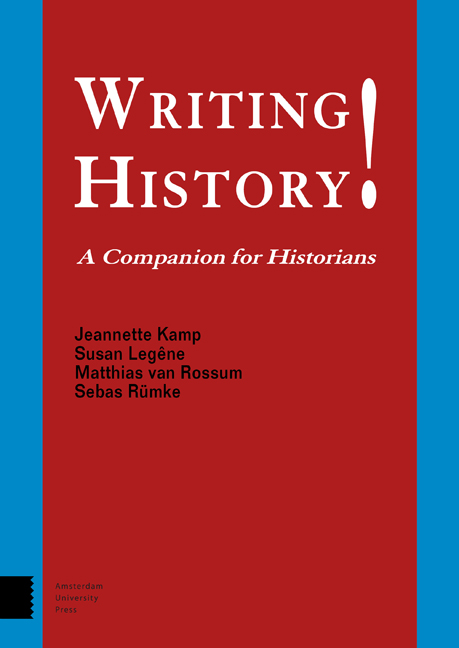Book contents
- Frontmatter
- Contents
- Introduction
- Structure of the Book
- 1 Historical Research: The Importance of the Research Question
- 2 The Building Blocks of the Historical Method
- 3 Applying the Historical Method
- 4 Writing History: Narrative and Argument
- 5 Presentation and Historical Debate
- 6 A Historian – Now What?
- Appendices
- I Guidelines for Notes
- II Other Styles of Notes
- Acknowledgements
- Index
4 - Writing History: Narrative and Argument
- Frontmatter
- Contents
- Introduction
- Structure of the Book
- 1 Historical Research: The Importance of the Research Question
- 2 The Building Blocks of the Historical Method
- 3 Applying the Historical Method
- 4 Writing History: Narrative and Argument
- 5 Presentation and Historical Debate
- 6 A Historian – Now What?
- Appendices
- I Guidelines for Notes
- II Other Styles of Notes
- Acknowledgements
- Index
Summary
History is a science in which texts are given much importance. It has already been emphasised that, as a rule, historians present the results of their research as a narrative. Therefore, writing is an important skill for a historian. This chapter deals with writing a historical account. How do you make your own written text from the raw data from literature and sources? How do you build your argument and how do you structure your text? How do you position your text properly in regard to the historical debate? What writing style would be best for you to use? The purpose of this chapter is to give guidelines to help you write a historical argument in which you provide a good historical explanation. After dealing with the organisation of the text (the structure), we will discuss the organisation of the parts of the text (paragraphs), and finally aspects of writing style, tone, and formulation.
The structure of a historical text
Writing is part of the research and explanation process. Above, we considered the various opinions of what makes a good historical analysis (Chapter 1). The opinions about historical account are relevant to the writing process and can lead to very different sorts of texts. Nevertheless, an author does not need to conform to a particular historicophilosophical school of thought to be able to write a good historical account. Certainly, this is not expected of students in the first years of their course. When considering how a historian should write, the question of what makes a good historical analysis is always there in the background. In itself, the text is an individual product, but however different they might be, texts are always judged on their merits as historical texts – and for that there are no hard and fast rules. Writing is a skill that varies from individual to individual and that requires the personal creativity of the author. However, guidelines can aid the development of this skill.
After all, the historian does not write just for himself or herself. The aim of an academic text is to communicate information in the clearest possible way. A good text is one that is understood by the reading audience for which it was intended.
- Type
- Chapter
- Information
- Writing History!A Companion for Historians, pp. 83 - 110Publisher: Amsterdam University PressPrint publication year: 2018



